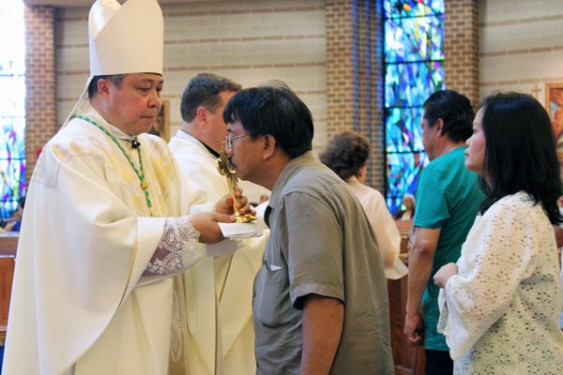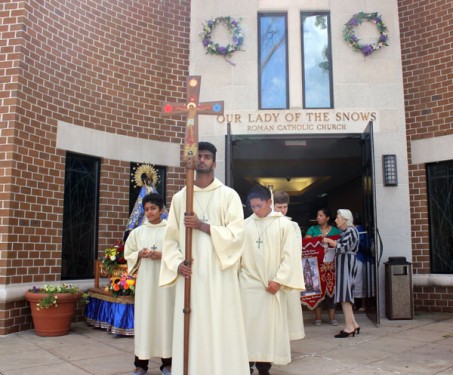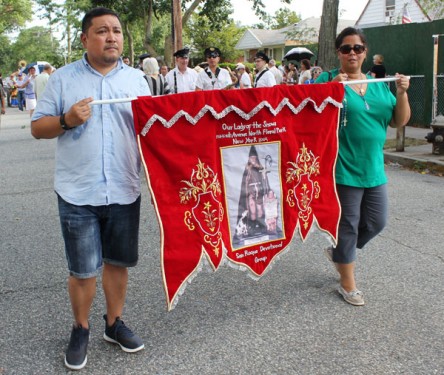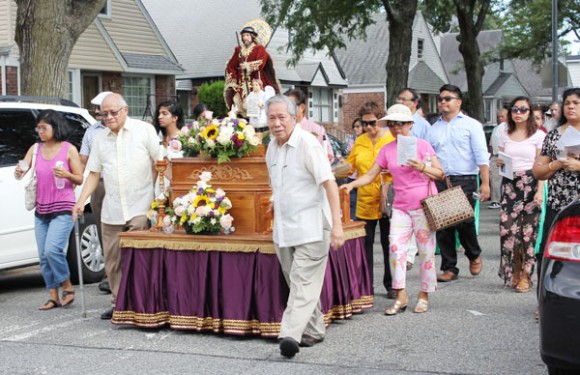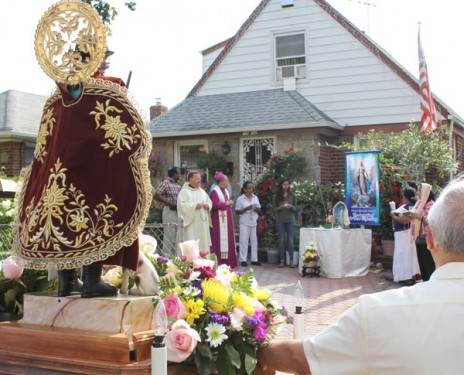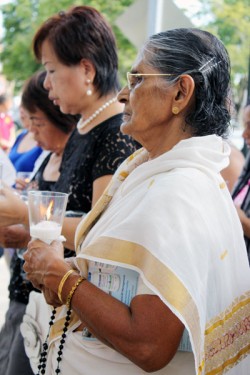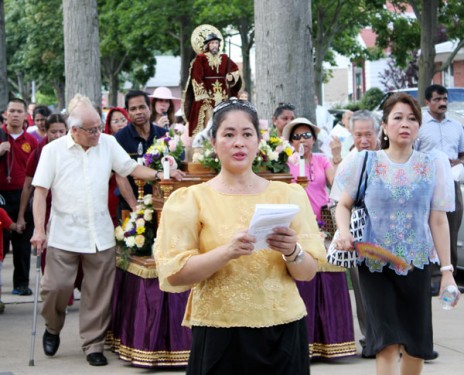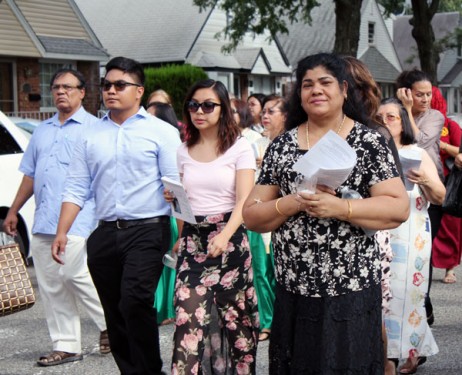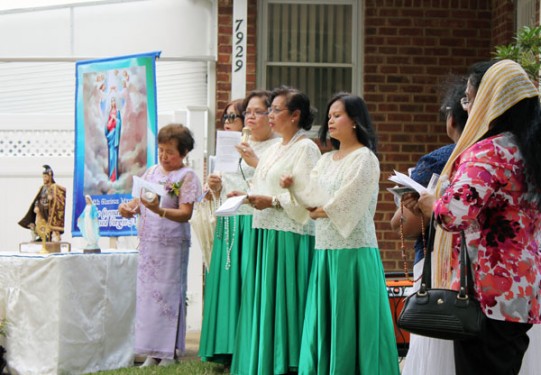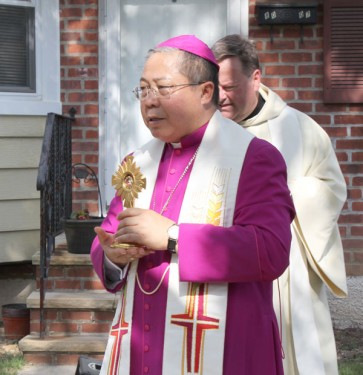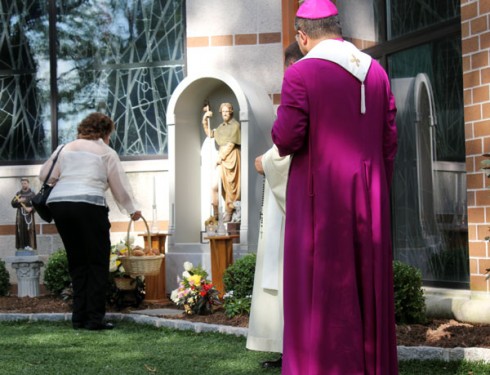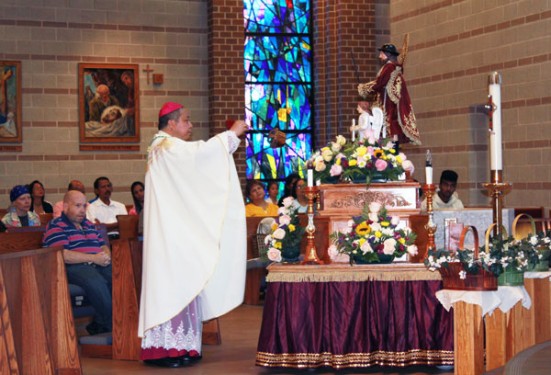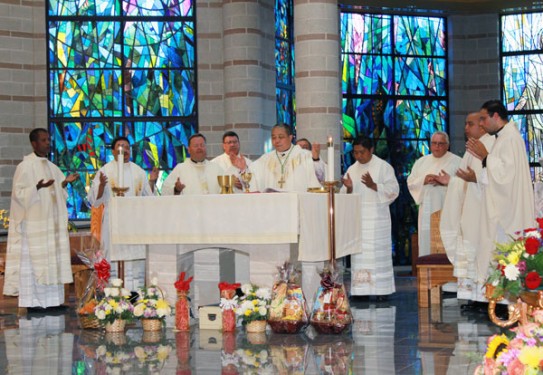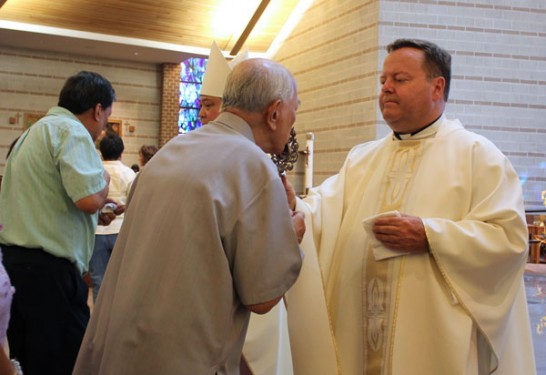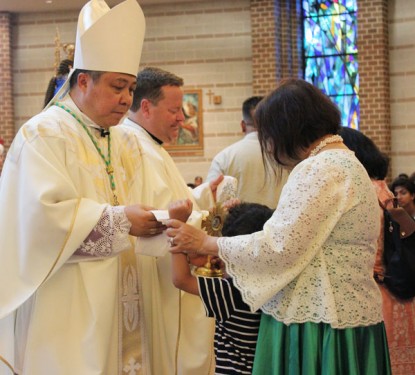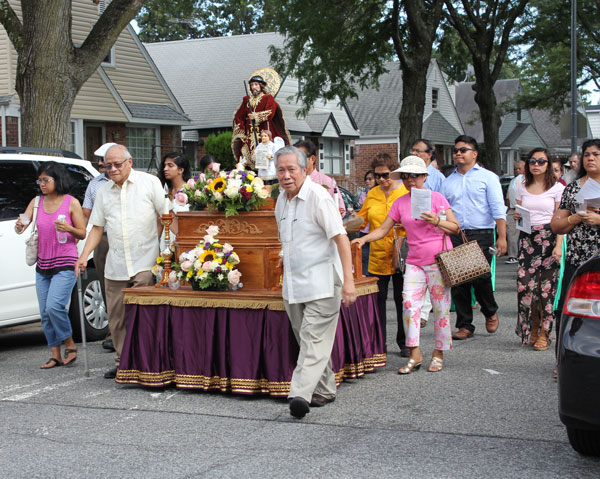
Temperatures in the mid-90s last Sunday didn’t deter devotees of St. Rocco from participating in the seventh annual feast in his honor at Our Lady of the Snows Church in North Floral Park.
On the final day of the parish novena to the patron saint of the sick and suffering, the festivities included an hour-long street procession, followed by Mass, personal testimony and veneration of St. Rocco’s relics with Archbishop Bernardino Auza, papal nuncio and permanent observer of the Holy See to the United Nations.
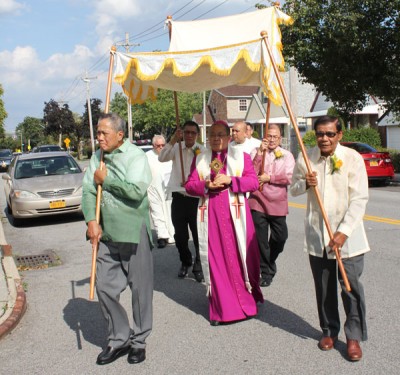
Following novena prayers in the air-conditioned church, NYPD officers from the 105th Precinct held traffic as Archbishop Auza carried a relic of the 14th-century saint through the city streets.
Older Filipino men escorted a statue on a small platform, and the Metropolitan Festival Band of Clark, N.J., played as clergy, parishioners and visitors walked in procession, stopping along the route at five parishioners’ homes to pray the Glorious Mysteries of the rosary.
The celebration was organized by parish’s San Roque Devotional Group, chaired by Luz Rebong. She started the group at the parish seven years ago under then-Msgr. Raymond Chappetto, who was pastor, and with the assistance of Father Patrick Longalong, parochial vicar at the time.
“Even though there’s hot weather, people came out to show their devotion to St. Rocco,” Rebong said.
From a young age, she learned about St. Rocco and the miracles attributed to him in her hometown of San Roque Village in the Philippines. She heard about how the saint was believed to have saved her village from occupation during World War II.
“Everybody had faith in him (St. Rocco),” she said, “and the village was spared.”
She believes St. Rocco has interceded several times in her life, and she feels “he is asking me to help spread his devotion.”
Faith Like a Flame
In his homily, the Filipino-born archbishop held up the saint as an example of one whose “faith was like a flame,” referencing Jesus’ desire “to set the earth on fire” in the Gospel reading from St. Luke.
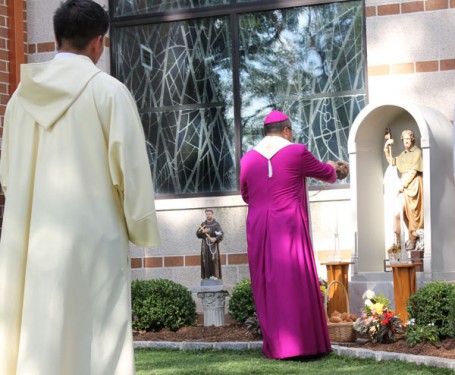 St. Rocco, also known as St. Roch or San Roque, was born to wealthy and devout Catholic parents in Montpelier, France, around 1285. After his parents’ death, when he was 20 years old, he sold all he had for the benefit of the poor and went on a pilgrimage to Rome. En route, he learned of a plague in northern Italy.
St. Rocco, also known as St. Roch or San Roque, was born to wealthy and devout Catholic parents in Montpelier, France, around 1285. After his parents’ death, when he was 20 years old, he sold all he had for the benefit of the poor and went on a pilgrimage to Rome. En route, he learned of a plague in northern Italy.
“Instead of just proceeding to Rome and avoiding the city like almost everyone else,” the archbishop said, “he decided to stay in the city and took care of the victims of the plague and all of the sick.”
When St. Rocco became infected, he retreated to the woods where a dog found him and brought him bread every day until he miraculously recovered. It is believed that “God sent him this dog to nurture him,” the archbishop said.
His feast day is observed on Aug. 16, and he is the patron of the sick and suffering, invalids and dogs. From France and Italy, devotion to this saint spread to Germany, England, Spain and the Philippines.
Like St. Rocco, who encountered the poor and suffering on his path to Rome, the archbishop told the congregation that in their own lives, they are never far from their brothers and sisters who are suffering not only physical and spiritual sicknesses, but also psychological afflictions, like depression and loneliness.
“Today, we need to ask St. Rocco to help us fight another plague, this time a terrible and spreading sickness of the soul,” namely, he said, “lukewarmness.”
“If we are not aware that our flame is vanishing, slowly disappearing, then our spirituality, our faith, our life will become lukewarm, if not cold.”
Many people have already lost that ardor for the faith, but the archbishop said it is never too late to revive the embers, and to ask St. Rocco’s aid in doing so.
“Let us pray to St. Rocco for his intercession that our love for the Eucharist, that our love for this living flame, never be diminished,” he said.

